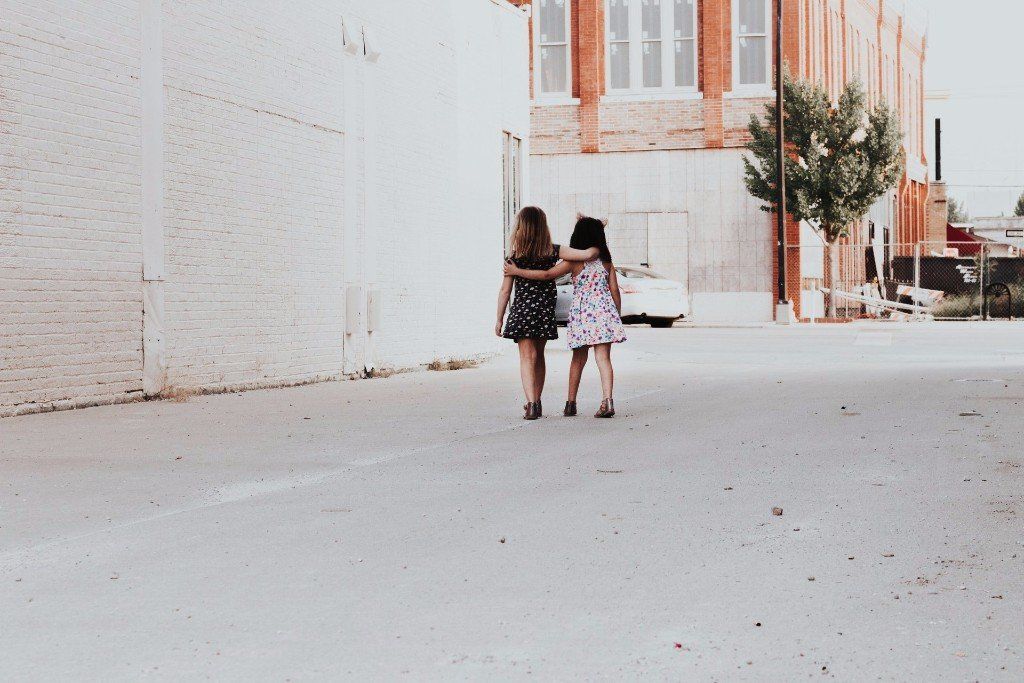Appropriate Expectations You Can Have For Yourself In Grief
- By Renee Balcom
- •
- 17 Jun, 2018
- •

This list was given to me by a friend after my mom passed on May 8th. For anyone who has grieved, or is currently grieving the loss of a beloved family member, friend or pet, I am sure you have, or are, experiencing at least a few of these. This list has been very helpful to me in reminding me of what I can expect for myself, “labeling” those things I have felt and thought and thus supporting my journey of self-acceptance, and patience, as this process unfolds.
Appropriate Expectations You Can Have For Yourself In Grief
By Therese A. Rando, Ph.D.
1. Your grief will take longer than most people think.
2. Your grief will take more energy than you would have ever imagined.
3. You grief will involve many changes and be continually developing.
4. You grief will show itself in all spheres of your life: psychological, social, and physical.
5. The depth of your grief will depend upon how you perceive the loss.
6. You will grieve for many things both symbolic and tangible, not just the death alone.
7. You will grieve for what you have lost already and for what you have lost in the future.
8. Your grief will entail mourning not only for the actual person you lost, but also for all the hopes, dreams and unfulfilled expectations you held for and with that person, and for the needs that will go unmet because of the death.
9. Your grief will involve a wide variety of feelings and reactions, not solely those that are generally thought of as grief, such as depression and sadness.
10. The loss will resurrect old issues, feelings and unresolved conflicts from the past.
11. You will have some identity confusions as a result of this major loss and the fact that you are experiencing reactions that may be quite different.
12. You may have a combination of anger and depression, such as irritability, frustration, annoyances or intolerance.
13. You may feel some anger and guilt or at least some manifestation of these emotions.
14. You may have a lack of self-concern.
15. You may experience grief spasms, acute upsurges of grief that occur suddenly with no warning.
16. You will have trouble thinking (memory, organization and intellectual processing) and making decisions.
17. You may feel like you are going crazy.
18. You may be obsessed with the death and preoccupied with the deceased.
19. You may begin a search for meaning and may question your own religion and/or philosophy of life.
20. You may find yourself acting socially in ways that are different from before.
21. You may find yourself having a number of physical reactions.
22. You may find that there are certain date, events, and stimuli that bring upsurges in grief.
23. Society will have unrealistic expectations about your mourning and my respond inappropriately to you.
24. Certain experiences later in life may resurrect intense grief for you temporarily.

I recently watched on You Tube a Britain's Got Talent audition. The male vocalist brought tears to the judges and I'm sure to most of the audience. It was very touching and tears were so fitting. As the judges were speaking to the contestant, they kept saying, "I'm sorry" as they wiped away their tears. And the contestant did as well.
It reminded me of just how often we feel a need to apologize for crying - for outwardly, honestly and trustingly sharing our sadness, grief, etc. So why is this?
Most of us, from a very young age, are given explicit or implicit messages such as: Be strong; boys (especially) don't cry; crying makes others uncomfortable; I will loose control if I cry; I can't be vulnerable. All these distorted beliefs lead to the final: I won't allow myself to go there.
I know people who allow the tears to flow and I can say that I am genuinely comfortable with just allowing whatever comes up to be. (Good thing considering what I do for a living). I admire and respect them beyond words. So, here is my confession: I am not so free in letting MY tears fall. I have allowed myself to believe in some of the falsehoods about letting our sadness, or being touched by something, to be expressed. Yes, I do tear up watching movies, hearing and sharing my clients’ pain. I even tear up, rather frequently, seeing beautiful things unfold in nature. Not Kleenex worthy though.
When it comes to the sobbing type of crying, I won't go there, even when that which I am processing would be acknowledged and honored in so doing. For me, it goes back to the big "T"....Trust...Trust that I will not forever be feeling bereft, broken, and helpless and essentially, a total mess with no ability to reclaim balance, and at least, a measure of peace.
I know where this false belief comes from. That is an intellectual insight and good to know. Also what is intellectually helpful is that I have been that total "mess" many times in my life and then all became well. But intellect is not enough. It goes back to those same themes:
~Self acceptance
~Self compassion
~Self forgiveness
~Self love
What would it feel like to embody and embrace these concepts even 50% of the time? Can you imagine the freedom we would experience in our lives? We could laugh, cry, express (safely), be still, and be in the moment, give, receive, giggle, cuddle, smile, frown and, well just BE.
What a concept, a wonderful, beautiful concept.

I say “recovering” because it has definitely been an ongoing journey. And I can say definitively my recovery is going very well.
So, what is it that I am “recovering” from? The need to be in control of everything, even obviously insignificant things. Makes me sound crazy and believe me, it was/is crazy-making! Not only did I annoy those around me, I was annoyed at myself. At times I came across as bossy, irritable, ungrateful and unnecessarily opinionated (or all of the above concurrently). What I experienced consistently was internal unrest and agitation, emotionally, mentally and even physically.
Over the years of studying about attachment challenges, neuroscience and the Enneagram, I have learned about what drives this need to be in control. The answer is simple: Fear...Fear of the unknown; of not being good enough; of not being able to “fix” it; of feeling difficult emotions; of loss of any kind. And for me, the most powerful contributor to my fear was non acceptance of what is.
Working with my close friend and co-founder of Warrior’s Soul Inc., Dawn Batti (and of course the wise equines), I began to learn about SELF acceptance. This was such a foreign concept to me. As I began to actually internalize and live this concept, my drive to be in control began to wane.
What does self-acceptance have to with not needing to be control? Here, the answer is not so simple. But this is what I have come up with that works for me: When I can accept me, ALL of me, I can move that acceptance into what is going on around me. That translates into not needing to change, for example, what others are doing and how they are doing it or trying to change how they are thinking and realizing there are other ways to get things done other than my way. ALLOWING is the key.
Trust of course plays a huge role in relinquishing fear and the need for the temporary fix of “control”. I am thankful to be in my mid 60’s because age invites one to be mindful and contemplative. And what I have chosen to invite into my life is the concept of TRUST. Trust of myself, of others and of Spirit.
I will be writing more about this notion of trust. It’s a complex issue on many levels for all of us humans. And it is a theme that keeps showing up in my life.







